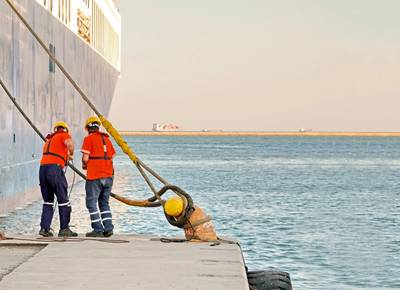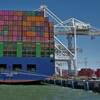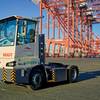Asian Seafarer Hubs Push Forward with New Technology Training
The seafarer home nations of the Philippines and Indonesia are working to equip their maritime workers with the skill sets needed to deliver a low and zero-carbon maritime sector.
Speaking at the ‘Seizing opportunities for green shipping in Asia and the Pacific’ conference organized by the Philippines' Maritime Industry Authority (MARINA), on May 15, Philippine Transmarine Carriers CEO Gerardo A. Borromeo said: “There is no doubt that the skill set for a career at sea is evolving. That is why we need to ensure that we provide the right kind of education and training so future generations of seafarers are able-skilled and ready to handle the new technologies and fuels on board that will increasingly be used in the years ahead. Countries with a strong maritime workforce must keep pace with the changing requirements of our industry as we transition to a low and zero carbon future which will benefit everyone.”
With 252,392 of the world’s seafarers — 13.3% of global crewmembers — calling the Philippines home, the country’s ability to shift its training systems towards low and zero-carbon will impact the maritime sector’s progress on climate targets. The country has already taken steps to prepare with President Marcos launching the tripartite International Advisory Committee on Global Maritime Affairs in January 2023.
Indonesia is also making inroads to upskill its maritime workforce through its ‘Skills for Prosperity programme in Indonesia', delivered by the ILO. The country, which is home to about 7.6% (143,702) of the world’s seafarers, is modernizing its training regime through international partnerships that share knowledge as well as best practice. The United Kingdom-funded program includes the establishment of an industry advisory board for each of the four Indonesian polytechnics involved, which aims to promote closer collaboration between education and industry, and provide clear progression for graduates into skills employment.
Mary Kent, Chief Technical Advisor, ILO, said: “The partnerships from the Skills for Partnerships program are creating decent employment opportunities in the maritime sector, which will result in wider socio-economic benefits across the region. We look forward to sharing the lessons learned from this program so that other regions can make informed decisions about the best ways in which to prepare their future maritime workforces.”
Maritime operations of the future are likely to be significantly more complex with new fuels and technologies being used in an increasingly digital and automated work environment — a fact that is likely to influence the upcoming review of the Standards of Training, Certification and Watchkeeping for Seafarers (STCW) convention and code.
Fabrizio Barcellona, the Seafarers’ and Inland Navigation Section Coordinator at the International Transport Workers’ Federation (ITF) warns, “Although the actions by the Filipino and Indonesian authorities are admirable, there is still much to be done if we are to appropriately empower a global seafaring workforce of the future. Improving the training environment is a very necessary first step — particularly given the concerns about STCW compliance and competency. This must be followed by upgrading to a new, modern and coordinated model for apprenticeships and cadet training with quality, enduring schemes backed by shipowners, unions and government. Collaboration between these sets of stakeholders is essential to deliver a Maritime Just Transition and safeguard the long term standing as global leaders in seafaring.”
Bringing together stakeholders such as governments, ship owners, unions, training facilities and more, is essential, says Sturla Henriksen, Special Advisor for Ocean, UN Global Compact. “Decarbonizing shipping is essential to combat the climate crisis and it is encouraging to see seafarer hubs across Asia and Africa taking action to equip their workers with the skills for future green operations. The global nature of this evolution means that no one is alone in tackling this issue and the Maritime Just Transition Task Force, which is primarily funded by Lloyd’s Register Foundation, is committed to providing resources to support stakeholders making this journey.”
A new effort to produce a seafarer training framework for decarbonization with relevant training materials for seafarers and maritime education and training providers is expected to be launched in July 2023 under Phase 2 of the Maritime Just Transition Taskforce.














